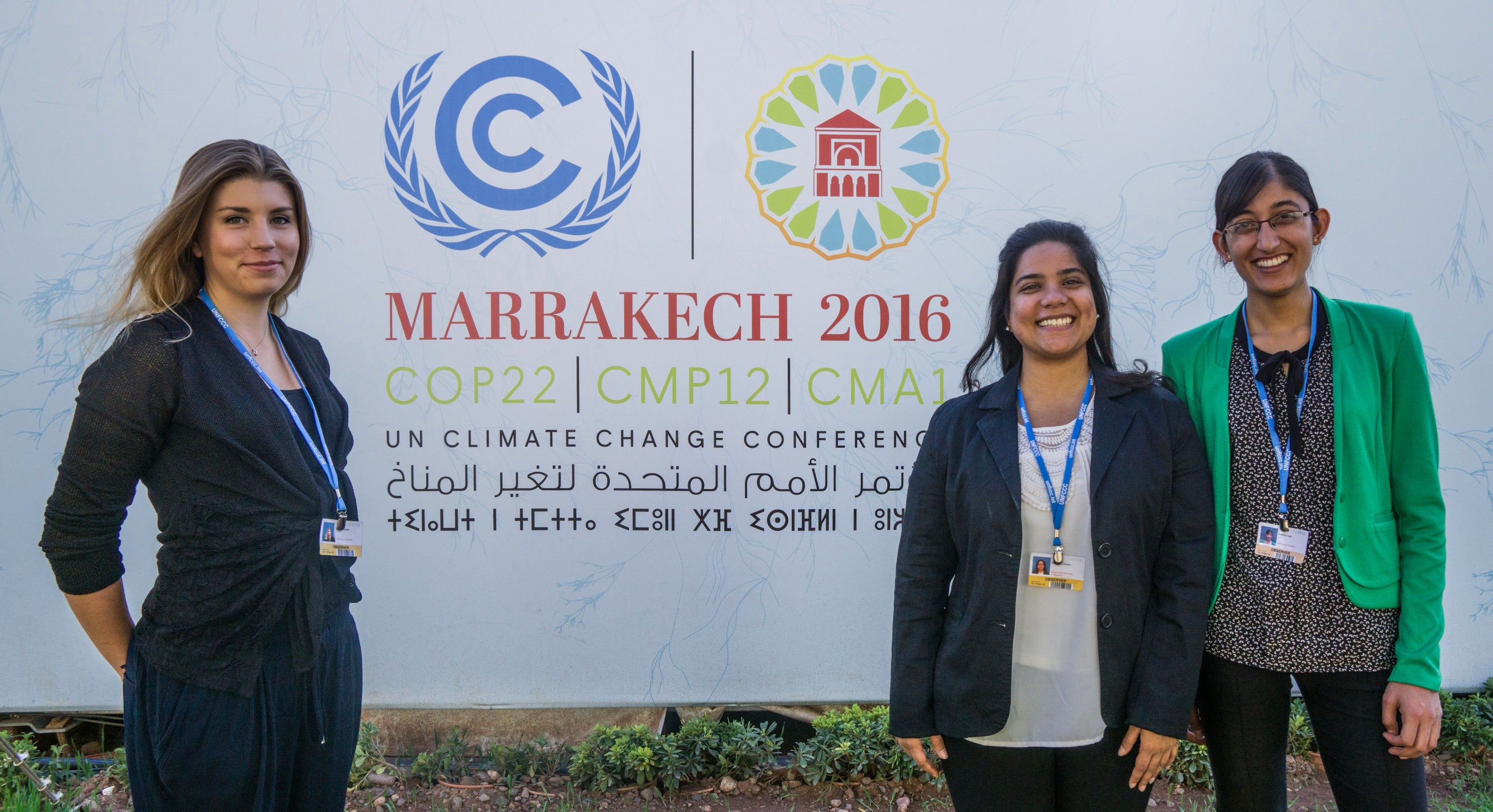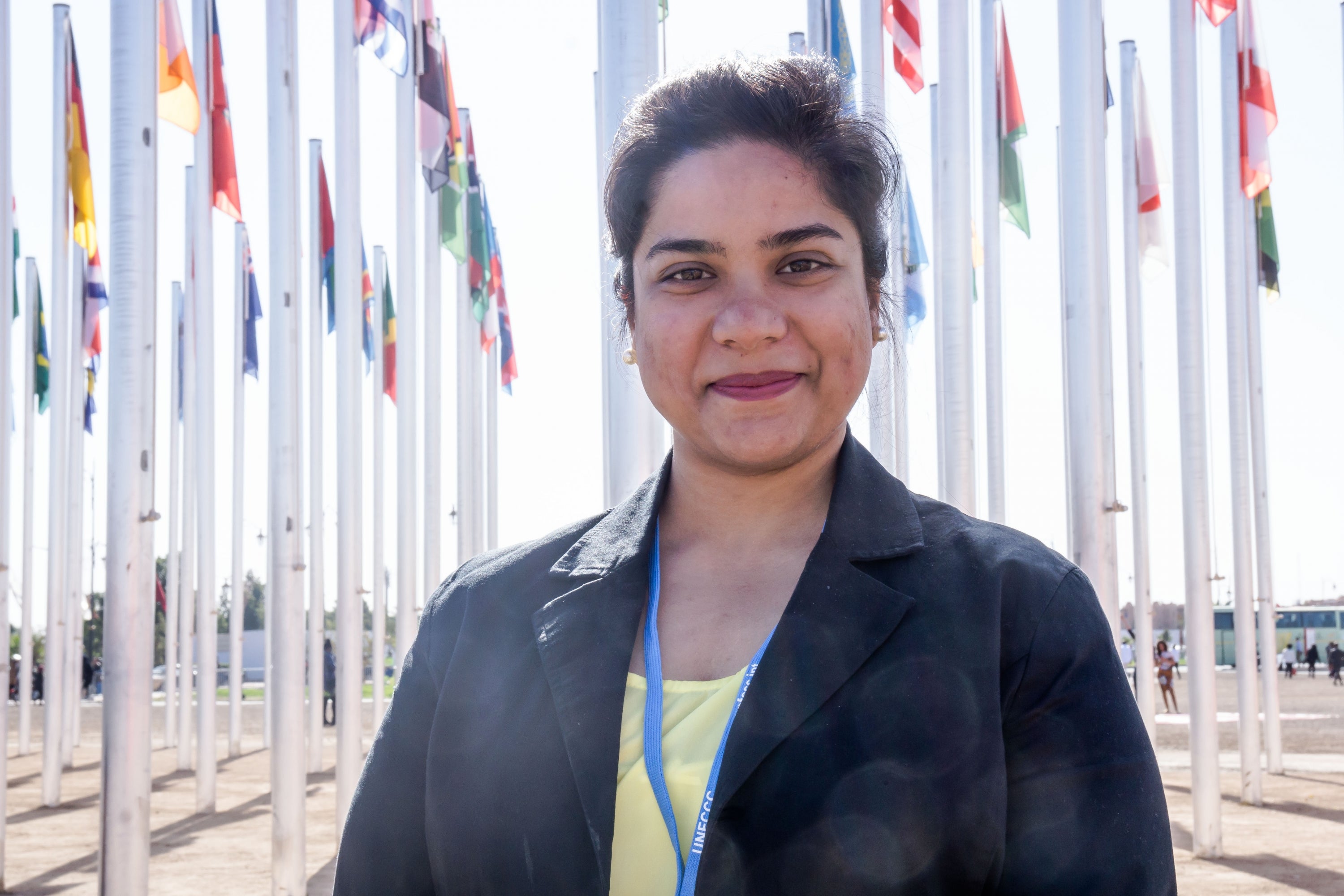Just as Donald Trump, a climate change denier, was elected the next US president, Waterloo student Masroora Haque was in Marrakech for COP22 - the Conference of Parties to the United Nations Framework Convention on Climate Change – joining negotiations on action plans for the Paris Agreement.
“The most important thing was the solidarity among the people there,” says Masroora, an MA candidate in Global Governance who travelled to Morocco along with four other students and two professors representing the University of Waterloo at COP22.

“COP22 has hugely informed my research and enhanced my understanding of how global governance plays out in real life,” says Masroora, whose research addresses synergies between local, national, and global actions for climate change adaptation.
In fact, her perspective on a globally coordinated response is poignantly informed by first-hand knowledge of climate change impacts in the most vulnerable countries.
Before starting her graduate program, Masroora worked in Bangladesh with the International Center for Climate Change and Development where she researched and wrote about the specific challenges for rural communities to adapt to climate change. The conference was a prime opportunity to feed her local Bangladesh experience into the global negotiations.
Delegates attending COP22 included government ministers from all over the world, UN officials, NGOs, activists, researchers, journalists, and students. Masroora and the other Waterloo students were given full access to observe and engage with negotiations between climate leaders, including meeting with Canada’s Minister of Environment and Climate Change, Catherine McKenna.
“I met people from Canada working across sectors on climate change - advocacy, indigenous groups, academia, consulting and the government. At the briefings by the Canadian government, I learned about their priorities and initiatives on climate change foreign policy.”
It was important for me to represent my university and the work we do on climate change.
Back in Waterloo, working as a CIGI Graduate Research Fellow, Masroora is contributing to a study on impacts of climate change around the world and how they affect Canada's trade and international development. Part of a proposal to the Network of Centres of Excellence federal government program, the study is titled Canada in a climate disrupted world. Together with other CIGI graduate fellows, Masroora will present their research and policy recommendations to Global Affairs Canada in the spring.

At COP22, Masroora advocated for localized research that offers on-the-ground information to guide actions taken by national policymakers and other decision makers. As part of the civil society session, she presented a paper that “looks at how existing national mechanisms can be leveraged to address loss and damage from climate change in Bangladesh.”
As a densely populated coastal nation that suffers the brunt of climate change disasters, such as cyclones, she says “Bangladesh takes a leading role in piloting new mechanisms and initiatives to adapt to the impacts of climate change.”
Examples of adaptation in coastal or island states includes building coastal embankments to prevent shoreline erosion, changing crops to salt-tolerant varieties, and moving effected populations to areas with alternative employment.
Masroora's time at COP22 proved highly beneficial for networking and speaking with potential collaborators on research such as the CIGI project. “It was important for me to represent my university and the work we do on climate change. I also want to thank UWaterloo Arts and the Balsillie School of International Affairs for supporting me on this incredible trip, and to Sarah Brown from IC3 (Interdisciplinary Centre on Climate Change) for helping me prepare for COP22.”